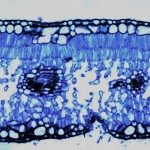Lien vers Pubmed [PMID] – 19709209
FEMS Microbiol. Ecol. 2002 Apr;40(1):39-46
We developed a rapid and efficient method based on culture on selective medium and colony hybridization assay for the detection of Vibrio cholerae in estuarine water samples. A 22-oligonucleotide sequence of the 16S-23S rDNA intergenic spacer region was labeled with digoxigenin and evaluated for specificity and sensitivity by dot blot and colony hybridization with collection strains and environmental and clinical isolates. No isolates of species other than V. cholerae hybridized with the oligonucleotide probe. Colony hybridization was then performed with mixed microbial populations from brackish and sea water samples isolated, after an enrichment step, on selective culture media. Plating on alkaline nutrient agar without added NaCl (modified alkaline nutrient agar, mANA) resulted in higher V. cholerae colony counts than did plating on other frequently used selective media, and favored direct detection by colony hybridization. The combined use of mANA agar and an oligonucleotide probe resulted in the specific recovery of V. cholerae and could be used for confirmation of the most-probable-number procedure usually used to count this bacterium in environmental samples.



